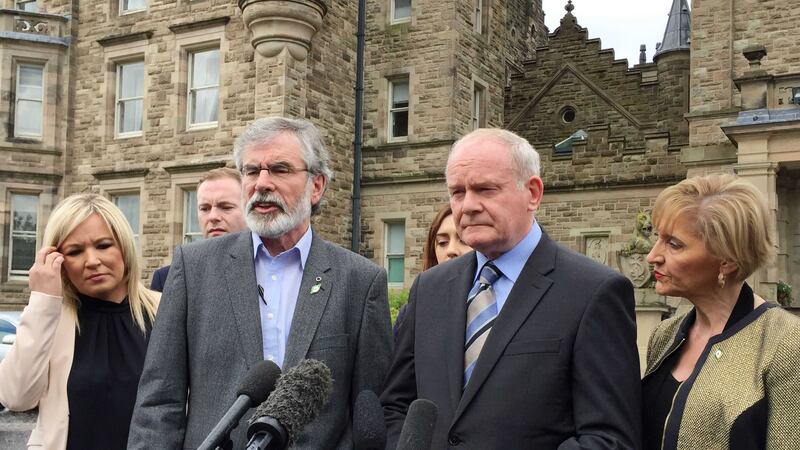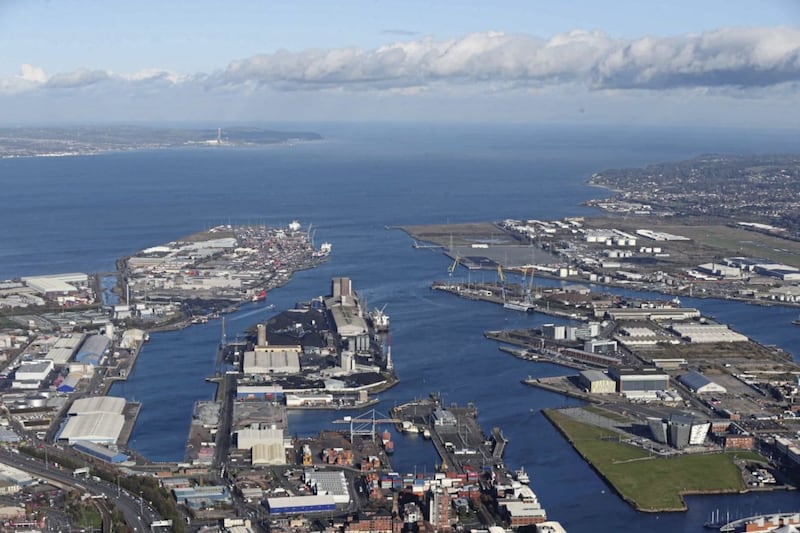IT’S all bad in economic terms for this place as a result of the referendum.
Gone the millions in structural funds, gone the single farm payment, peace money in 2020.
Richard Ramsey the Ulster Bank’s chief economist concludes it’s the end of the road for reduction in corporation tax.
What’s the point when there’s no access to the single market?
Still, none of that matters to the DUP or our proconsul.
It’s clear from Monday's unsavoury performance in the assembly the DUP Leave supporters were motivated by simple narrow-mindedness hoping to strengthen the border.
Who cares about jobs or trade? As for our Little Englander proconsul, she’s obviously as expert in economics as Gerry Adams. For her, as she wrote, ‘it’s all about sovereignty’.
Easy for her and her millionaire friends. When you’re as rich as she is the jobs, pensions and health care of the little people don’t matter compared to abstractions.
Roy Foster, Carroll professor of Irish History at Oxford described her as ‘dim-witted’ and ‘incredibly inadequate’. Certainly she misrepresents the will of the people here.
Luckily there’s an upside. The rush to isolationism and xenophobia our proconsul and her friends led does not simply have an economic and political impact.
There are constitutional implications. Ironic that the tunnel vision we saw exhibited at Stormont led the DUP to advocate voting Leave in a referendum which has permanently damaged the union they so blindly cling to. Not just ironic but stupid.
Sinn Féin fluffed their initial response. They were slow off the mark to spot what an opportunity the outcome presents.
Cameron invited all the devolved administrations to talks about how the divorce from the EU will work.
However what’s really important is that there will be detailed and extensive talks between the British and Irish governments beginning this week.
Sinn Féin must be involved. Mark Durkan MP, the one with the brains, quickly suggested there should be a British-Irish conference on the issues.
Sinn Féin should support that and become involved making common cause with the Irish government. They can hardly produce a joint position with the DUP about how to become part of Little England.
The British need the Irish in their EU negotiations because Dublin will be their only friend among the twenty-seven other capitals.
Like the others Dublin has a veto on proposals the British make or others make to punish the British. All that gives the Irish government leverage.
Sinn Féin must exert pressure on the Irish government to use that leverage because Enda Kenny’s default position is forelock-tugging deference.
A British-Irish conference must consider the implications for the Good Friday Agreement and the Northern Ireland Act which contain many references to the EU including obligations under EU laws.
The Agreement is an international treaty which the British must honour. They can only rewrite parts of it with Irish consent.
Even then the Republic might have to hold a referendum to ratify substantive changes to the GFA.
A British-Irish conference to examine and, if necessary, rewrite parts of the GFA and amend parts of the Northern Ireland Act 1998 should be a quid pro quo for Irish government assistance to the British to make their exit as painless as possible.
For the British, agreeing to changes to the Agreement would be painless.
They have absolutely nothing to lose except maybe the support of unionists but in the grand scheme of things that butters no parsnips.
Not compared to the advantages of Irish support over the next few years. These British-Irish negotiations will take place; that goes without saying.
It’s up to Sinn Féin to maximise their involvement in them rather than wasting their time with some internal Westminster-Stormont charade.
The Irish government can’t stand aside as they’ve done since 2010 and claim these are purely internal northern matters.
Self-evidently they’re all-Ireland matters and fall under the auspices of Strand 2 of the Agreement.
The British-Irish Inter-Governmental Council already exists to deal with some of those matters.
It would be very easy to use its machinery to operate the conference dealing with England’s contraction into an isolated part of an island off Europe. Let’s hear some proposals from Sinn Féin on how to do it.





